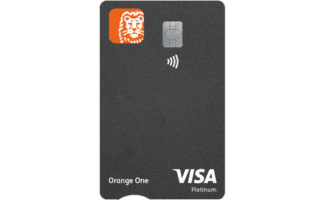How to Deal with Unexpected Expenses Without Going Into Debt

Understanding the Impact of Unexpected Expenses
When faced with unexpected expenses, the consequences can ripple through various aspects of your financial life. For Australians, being unprepared for the unpredictability of life can lead to anxiety, particularly when considering essential services like healthcare. For instance, a medical emergency might necessitate immediate access to a funds, which could be challenging if you lack adequate savings. Similarly, car repairs due to unforeseen engine issues can disrupt daily routines, not to mention strain a budget unexpectedly. It is essential to establish effective strategies to manage these unpredictable financial hardships.
Strategies to Manage Unexpected Costs
Implementing a robust financial plan can alleviate the stress caused by unanticipated expenses. Here are key strategies to consider:
- Maintain an Emergency Fund: Establishing an emergency fund should be a priority. Financial experts recommend saving at least three to six months’ worth of living expenses. This reserve acts as a financial safety net, allowing you to address urgent needs without resorting to high-interest borrowing options. For example, if your monthly expenses are AUD 3,000, aim to save between AUD 9,000 and AUD 18,000. This cushion provides reassurance during crises.
- Assess Your Budget: Regularly reviewing your budget enables you to pinpoint areas for potential savings. For instance, scrutinizing discretionary spending—like dining out, subscription services, or entertainment—can help you identify where to tighten the belt. By redirecting those funds into your emergency savings, you bolster your financial resilience.
- Consider Extra Income: Exploring avenues for additional income, such as freelance projects or part-time work, can significantly ease financial pressure. Australians might consider options like ride-sharing services, tutoring, or consulting in their field of expertise, allowing for a flexible approach to increasing earnings.
- Use Financial Tools: Various budgeting apps and financial software are available that simplify tracking your spending habits. Tools such as Pocketbook or ASIC’s MoneySmart budgeting planner can not only help maintain your budget but also provide alerts regarding potential financial pitfalls, ensuring proactive management of your funds.
- Negotiate Bills: Engaging with your service providers regarding payment plans or discounts can yield substantial savings. Don’t hesitate to contact your utility company or internet provider to inquire about existing offers or more affordable plans. You may be surprised at the savings possible through simple negotiations.
By actively adopting these strategies, you can effectively navigate unexpected financial challenges without the need for high-interest loans or reliance on credit cards. Establishing a plan for emergency preparedness empowers you to tackle financial uncertainty with confidence, ensuring that you maintain your financial health in both stable and challenging times.
SEE ALSO: Click here to read another article
Proactive Financial Planning
To navigate unexpected expenses effectively, having a proactive financial strategy is essential. Being ahead of potential financial challenges empowers individuals to manage their resources efficiently, ensuring that sudden costs do not undermine their financial stability. Below are detailed approaches to establish a robust proactive financial plan.
- Create a Comprehensive Budget: Crafting a detailed budget serves as the foundation of good financial management. Maintaining a meticulous overview of your income and expenses enables you to identify spending patterns and areas where you may be overspending. By categorizing expenses into fixed and variable costs, such as rent, utilities, groceries, and entertainment, you can better understand where your money is going. A well-structured budget not only aids in tracking but also helps you forecast potential shortfalls, allowing for better preparation for unforeseen costs. For instance, using tools such as the MoneySmart Budget Planner from the Australian Securities and Investments Commission (ASIC) facilitates refinement of your budgeting process and provides insights into effective financial behaviors.
- Prioritize Savings: Setting clear savings goals is paramount to being prepared for unexpected expenses. Allocating a dedicated portion of your income toward savings can significantly enhance your financial readiness. One effective method is to automate your savings transfers on payday, directing a specified amount into a high-yield savings account that is exclusively for emergencies. A common recommendation is to aim for three to six months’ worth of living expenses in this account. For example, if your monthly expenses total AUD 3,000, strive to accumulate between AUD 9,000 and AUD 18,000 in your emergency savings fund, ensuring that funds are readily available when needed.
- Foster Financial Literacy: Enhancing your understanding of financial concepts enables informed decision-making. Exploring workshops or online courses targeting financial literacy in Australia is invaluable. Topics such as investment planning, risk diversification, tax implications, and insurance understanding are essential areas to explore. Several Australian institutions and community centers offer free or low-cost financial education programs. Gaining knowledge in these areas equips you with vital information that can prevent poor financial choices during unexpected situations, such as a sudden job loss or medical emergencies.
- Insurance Risk Management: Adequate insurance coverage can significantly reduce the financial impact of emergencies. It is crucial to periodically review existing insurance policies—including health, car, home, and life insurance—to ensure they provide comprehensive coverage against potential risks. For instance, having comprehensive car insurance can alleviate the financial burden associated with substantial vehicle repairs following an accident. Additionally, evaluating options for income protection insurance can safeguard against loss of income during critical illness or injury, thus reinforcing financial stability during challenging times.
- Develop a Contingency Plan: Although it is impossible to predict every financial mishap, having a contingency plan helps mitigate its effects. Identify potential sources of quick cash in emergencies, such as selling unnecessary items, leveraging skills for side gigs, or taking temporary jobs. Knowing these options beforehand prepares you to respond efficiently to unexpected financial demands. For example, if facing sudden medical bills, consider utilizing platforms that allow for the sale of items you no longer need or turning a hobby into a part-time income source.
By implementing these proactive financial planning strategies, Australians can significantly reduce the likelihood of relying on credit or incurring debt when unforeseen expenses arise. A disciplined approach to budgeting, consistent savings, and a commitment to financial education not only enhances overall financial resilience but also fosters a profound sense of preparedness, ultimately contributing to greater peace of mind.
SEE ALSO: Click here to read another article
Building Financial Flexibility
While proactive financial planning is crucial, cultivating financial flexibility is equally important for effectively managing unexpected expenses. Financial flexibility allows individuals to adapt quickly to changing circumstances without resorting to debt. Below are several strategies to enhance financial adaptability.
- Maintain Liquid Assets: Keeping a portion of your wealth in liquid cash or easily accessible investment accounts is essential. This practice ensures that you have funds readily available for emergencies without the need to liquidate assets at an unfavorable price. High-yield savings accounts or cash management accounts are ideal for maintaining liquidity while generating some interest. For instance, having AUD 2,000 in an accessible account can prevent reliance on credit cards or loans during an unexpected event, such as a sudden car repair, thereby protecting your credit rating.
- Utilize Community Resources: In times of financial distress, leveraging community support can provide invaluable assistance. Many local organizations and non-profits in Australia offer financial counseling, food aid, or aid in the form of grants for essential services—or even direct material assistance. Community health centers often provide subsidized medical services, which can mitigate healthcare costs. Being aware of these resources in advance ensures you can obtain help quickly, which can alleviate some financial burdens associated with unexpected expenses.
- Establish a Diverse Income Stream: Relying solely on a single source of income can increase vulnerability to financial shocks. Consider establishing supplementary income streams that can be tapped into during emergencies. Options include freelance work, part-time consulting, or even monetizing hobbies such as crafting or tutoring. Various platforms like Upwork or Airtasker facilitate gig work, enabling you to generate quick income without significant investment. This diversification allows for greater financial resilience by reducing dependence on one income source and providing greater flexibility to handle sudden expenses.
- Engage in Mindful Spending: Practicing mindful spending involves making conscious decisions about where and how to allocate your money. Reassessing your discretionary spending helps to identify non-essential expenses that can be trimmed or eliminated. For instance, consider setting a monthly limit for dining out or entertainment. By reducing discretionary spending, you create a buffer that can be utilized for unexpected expenses without financial strain. This cautious approach also fosters an overall awareness of your financial habits, contributing to a culture of saving and stability over time.
- Negotiate Bills and Expenses: Many Australians are unaware that many common services, including utility bills, internet, and insurance premiums, are negotiable. It often pays to contact service providers and ask for better rates, especially if you have been a loyal customer. Discounts or promotions can significantly reduce your monthly expenditure, freeing up more funds to allocate toward savings or unexpected expenses. Negotiating existing bills may reduce costs, allowing for improved financial positioning and flexibility during unforeseen financial challenges.
By integrating these strategies into your financial management, you can cultivate the flexibility necessary to handle unexpected expenses without resorting to debt. This approach to personal finance not only aids in remaining composed during financial shocks but also enhances overall financial well-being and promotes long-term stability in an unpredictable economic landscape.
CHECK OUT: Click here to explore more
Conclusion
Incorporating robust financial strategies to navigate unexpected expenses is vital in achieving long-term financial stability. By emphasizing financial flexibility through liquidity, community resources, diverse income streams, mindful spending, and renegotiation of bills, individuals can fortify themselves against unforeseen financial shocks. Each of these strategies contributes to cultivating resilience in your personal finances, ensuring that you can adapt swiftly without resorting to burdensome debt.
One essential component of financial flexibility is maintaining an emergency fund. This fund serves as a financial buffer against unexpected costs—such as car repairs or medical emergencies—allowing individuals to cover these expenses without relying on credit. According to financial experts, a well-stocked emergency fund should ideally contain three to six months’ worth of living expenses. Furthermore, this financial cushion protects your credit rating, as it prevents the need for high-interest loans during times of crisis, thereby fostering a sense of security in unpredictable circumstances.
Utilizing available community resources can also alleviate immediate pressures. In Australia, numerous local programs offer financial counselling, food banks, and utility assistance that can assist individuals and families facing financial difficulty. By tapping into these resources, individuals can effectively manage their costs and redirect limited funds towards essential needs, thereby minimising financial stress.
Diversifying Income Streams
Diversifying income is another crucial strategy. By exploring side jobs or passive income opportunities—such as rental properties or freelance work—individuals can create additional revenue that bolsters their financial security. This approach is particularly relevant in the contemporary gig economy, where individuals can leverage digital platforms to easily market their skills or products.
Mindful Spending and Its Importance
Furthermore, adopting a mindset of mindful spending is instrumental in long-term financial health. This involves analyzing purchasing habits to identify non-essential expenses that can be reduced or eliminated. For example, utilizing budgeting apps like Pocketbook can help track expenses and encourage conscious decision-making that ultimately supports savings. Taking the time to review financial goals regularly and aligning spending with personal values reinforces this practice, ensuring that expenditures contribute to long-term objectives rather than impulsive decisions.
Ultimately, viewing unexpected expenses not as setbacks, but as manageable challenges, can transform one’s financial outlook. Embracing a proactive mindset fosters a culture of preparedness and flexibility that can lead to long-term financial well-being in an ever-changing economic landscape. With these tools at your disposal, you can confidently approach financial uncertainties while sidestepping the pitfalls of debt.

Linda Carter is a writer and expert in finance and investments. With extensive experience helping individuals achieve financial stability and make informed decisions, Linda shares her knowledge on the Innovbs platform. Her goal is to provide readers with practical advice and effective strategies to manage their finances and make smart investment choices.






